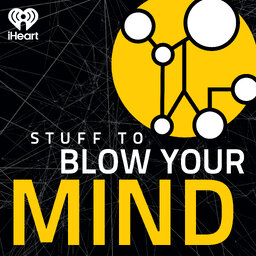Smart Talks with IBM: The Debating AI
Project Debater is the first AI system that can debate humans on complex topics, with a larger ambition of helping people build persuasive arguments and make well-informed decisions. In this episode of Stuff to Blow Your Mind, Robert and Joe chat with Project Debater Lead Researcher, Noam Slonim and IBM VP for Data and AI, Madhu Kochar.
Learn more about your ad-choices at https://www.iheartpodcastnetwork.com
In 1 playlist(s)
Stuff To Blow Your Mind
Deep in the back of your mind, you’ve always had the feeling that there’s something strange about re…Social links
Follow podcast
Recent clips

Crab Bag, Part 3: The Crab is a Lonely Hunter
55:55

Weirdhouse Cinema Rewind: La Loba (1965)
1:30:07

From the Vault: Mystery Cults, Part 4
1:00:23
 Stuff To Blow Your Mind
Stuff To Blow Your Mind